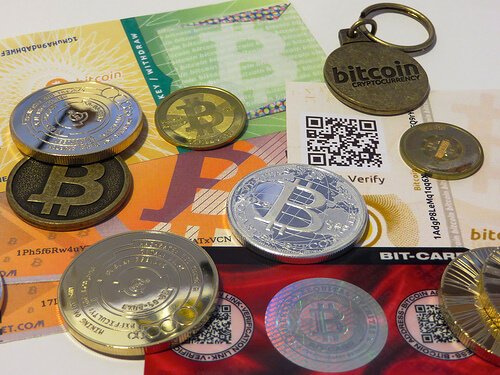Bitcoin, the crypto-currency first appeared in 2009, stays strong, despite all frenzy surrounding it.
The year of 2014 is a chaotic one for the virtual currency, with many ups and downs, what, at first, made bitcoin future look rather grim. However, despite all mayhem surrounding it, bitcoin network keeps the light on.
Recently it has been extremely tough time with two bitcoin exchanges hacked and one closed, an American business executive connected with bitcoin found dead of alleged suicide in Singapore, as well as the disclosure of the currency’s mysterious creator.
After, the newly published investigation by Newsweek, reporters camped outside of 64-year-old Dorian Satoshi Nakamoto’s home in California. But as it turned out he could give them nothing.
“I’m not involved in Bitcoin,” Nakamoto said. “Wait a minute — I want my free lunch, first.” Nakamoto then took off with an Associated Press reporter for a sushi lunch, pursued by a horde of other journalists. Nakamoto later repeatedly told the AP that “I got nothing to do with it.”
Nevertheless, despite all those troubles, Bitcoin looks comparatively solid, trading nearly 10 percent higher Saturday than a week before. Each bitcoin is worth more than $600 in recent trading.
“Bitcoin works really well,” said Matthew Green, a Johns Hopkins University cryptographer who is working to develop a different virtual currency. “All this craziness around Bitcoin isn’t around Bitcoin itself. It’s around the people.”
First appearing in 2009, bitcoin is a decentralized virtual currency that has also been declared as an alternative-payments system that’s faster, cheaper, and even more secure (if not to take into consideration recent attacks). Unlike any other currency, bitcoin is not controlled by a central bank, and can move through the global trade system with low fees, relative privacy and no regulation.
US-based Bitcoin Foundation said in a statement last week that recent events were certainly not the end of bitcoin. Their stamen read that “as our industry matures, we are seeing a second wave of capable, responsible entrepreneurs and investors who are building reliable services for this ecosystem.”
This week Barry Silbert, chief executive of SecondMarket, said: “The banking system has come to the realization that digital currency isn’t going away.”
During a panel discussion at the MarketWatch Investing Insights event ‘Bitcoin: Boom and Bust’ he added that the SecondMarket board has approved a proposal to spin off its bitcoin business into a separate company, which will include the bitcoin exchange.
“We are officially moving forward with it,” Mr. Silbert added.
Bitcoin enthusiasts like to point out that the currency has proved resistant to any kind of weather. There are currently around 12 million bitcoins in circulation and each bitcoin is protected by a distinct cryptographic code. And in case when this code is lost, as has sometimes happened, the bitcoin disappears forever.
But criminals have targeted the computers that store bitcoins in encrypted code, in depositories known as “hot wallets.” Over the past two weeks, it has become clear they have succeeded spectacularly in breaking those systems, what resulted into bankruptcies of the Tokyo-based exchange Mt. Gox and Flexcoin, a Bitcoin bank based in Canada, this past week.
However, the interest in bitcoin network is rising, attracting flood of investments from venture capitalists, allowing for the development of exchanges that, experts say, are more likely to survive the attacks of hackers and other threats to the currency’s stability.
Currently there are around 20,000 merchants accepting bitcoins worldwide and the number is constantly increasing. In some countries there are ATMs that trade in them, making exchanges easier. It has even become possible to pay for a taxi, book a hotel room or even receive your salary in bitcoins.
Unlike other forms of online payment, such as Paypal, there are no charges for using bitcoins and no commission is paid.
Some experts say that due to the fact that bitcoins are traded directly between individuals, without a bank to act as an intermediary, it may be difficult for those who have stolen bitcoins to trade them without being discovered.
All transactions are recorded on a so called “block chain.” This is a Web-based public ledger that provides a measure of transparency but also allows governments and others to potentially analyze transfers to determine who owns bitcoins and how they are being used. The exchanges are required by laws in the countries where they operate to record who buys bitcoins, reports the Washington Post.
